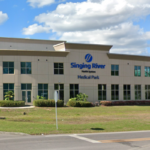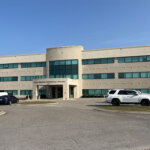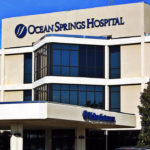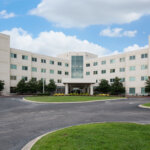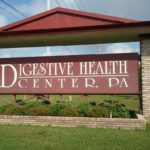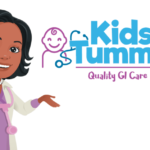Digestive Health
Each year, millions of Americans suffer from digestive health issues. Singing River helps lead the way to better digestive health on the Gulf Coast with innovative treatments and comprehensive, compassionate patient care.

Make an Appointment with a Gastroenterologist
Our digestive health providers and partners evaluate and treat many diseases of the digestive tract. These specialists perform procedures at Singing River Health System.
If you are experiencing issues with stomach pain and digestion, make a first appointment with a gastroenterologist.
Ocean Springs Hospital Endoscopy Suite
Take a tour of the Ocean Springs Hospital Endoscopy Suite with Gastroenterologist, Dr. John McKee. You’ll see how Singing River uses the latest technology and best practices to offer the best health care experience possible.
Heartburn Treatment Center & GI Lab
The Heartburn Treatment Center & GI Lab performs many digestive diagnostic tests, including the test to determine if you have GERD, including:
- Acid Reflux Study (24-hour Esophageal pH Test)
- Upper GI Endoscopy
- PillCam™ SB 3
- Esophageal Manometry
- Anorectal Manometry
Learn more about the Heartburn Treatment Center & GI Lab at Ocean Springs Hospital.
Digestive Illnesses We Treat
Below are some of the gastrointestinal conditions and illnesses treated at Singing River Health System.
Heartburn
Heartburn is not normal, but it is common. About 25 million people have heartburn, a burning sensation in the chest, every day. While many people have food-related heartburn, if you have heartburn more than two times a week, you may have gastroesophageal reflux disease (GERD), and you should consult a gastroenterologist for diagnosis and treatment of your symptoms.
Diverticulitis
Diverticulitis is an inflammation or infection of pouches formed in the lower part of the colon known as diverticula. Diverticulitis can be mild, moderate, or severe.
In mild cases people may lower abdominal pain, cramping, and bleeding. Mild cases are treated conservatively with clear liquids. Moderate to severe cases present with fever and pain and are treated with antibiotics. If you have diverticulitis, it’s important to discuss what type of foods that you would eat with your gastroenterologist.
Irritable Bowel Syndrome
Irritable bowel syndrome (IBS), also called Spastic Colon, is a mobility problem of the colon that causes cramping, abdominal pain, bloating, gas, and diarrhea. Foods that can worsen IBS are fructose (sugar) , lactose (dairy), galactans (beans), fructans (wheat, onions, garlic), and polyols (artificial sweetener).
Colon Cancer
Colon Cancer is difficult to diagnose in the early stages, as it can be asymptomatic, i.e., not cause any symptoms. It takes an average of 7 years for a polyp to grow into an invasive cancer. Symptoms of colon cancer, as the polyp progresses, can include rectal bleeding. Never think that rectal bleeding is hemorrhoids until proven by your physician.
Signs that you may have a growing colon polyp include:
- Rectal bleeding – either blood mixed with the stool or bright red blood
- Thinning of stools
- Change in bowel habits – new onset diarrhea or new onset constipation
- Weight loss
When a patient first comes to Singing River Digestive Services, your first appointment will include a medical interview. During the interview, you’ll discuss family history and risk factors for colon cancer. Then, we will arrange a colon cancer screening regimen for you. Often that will be a colonoscopy, but there are other screenings for colon cancer, such as:
- Blood tests
- Stool tests
- Short scope
- Sigmoidoscopy
- Radiology/CT-based screening
Other digestive disorders include:
| Pancreatitis Hepatitis Acid Reflux Ulcers Colitis Polyps | Crohn’s Disease Constipation Diarrhea Gallstones Ulcerative Colitis Inflammatory Bowel Disease |









